Britons vote in high-stakes election dominated by Brexit
Snap election called by PM Johnson aims to end months of political deadlock over UK’s bid to exit EU.
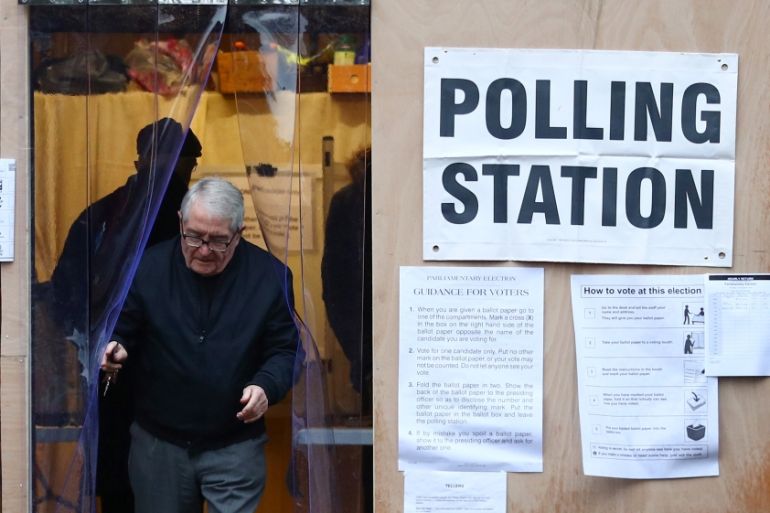
London, United Kingdom – The United Kingdom’s snap general election has entered its final hours, with millions expected to have delivered their verdict on the Brexit crisis engulfing British politics by the time polls close.
Thursday’s ballot will shape how, or whether, the UK will finally exit the European Union after months of parliamentary deadlock over how to execute the result of its 2016 referendum on membership of the bloc.
Keep reading
list of 4 itemsCroatians vote in election pitting the PM against the country’s president
Solomon Islanders vote in election that could shape ties with China
Analysis: Ruling party errors give Turkey’s opposition hope for future
The vote brings to an end a febrile campaign period during which Prime Minister Boris Johnson’s Conservative Party and Jeremy Corbyn’s Labour Party have offered starkly different visions for resolving the impasse and rebuilding the UK after a decade of austerity.
Johnson wants to action a swift exit from the EU, while Corbyn is committed to holding a second referendum over the issue.
Polls opened at 7am (7:00 GMT) and close at 10pm local time (22:00 GMT), with final results expected by early Friday morning.
More than 45 million voters are registered to take part, but harsh weather and a general sense of weariness, brought on by this being the third election since 2015, may hamper turnout.
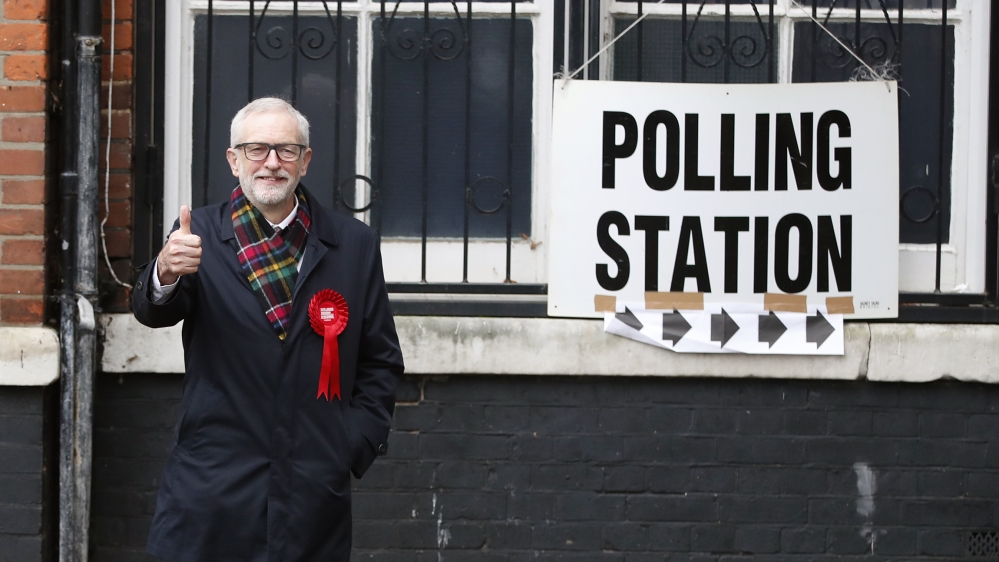
As leaders of the UK’s two largest parties, Johnson, 55, and Corbyn, 70, are clear frontrunners, but both have been criticised over their leadership credentials.
They are fighting what has been called an “unpopularity contest”.
Brexit aside, health and social care provision, the unfolding climate crisis and law and order are among voters’ other key concerns, along with the UK’s economy, which flatlined in the three months leading up to October.
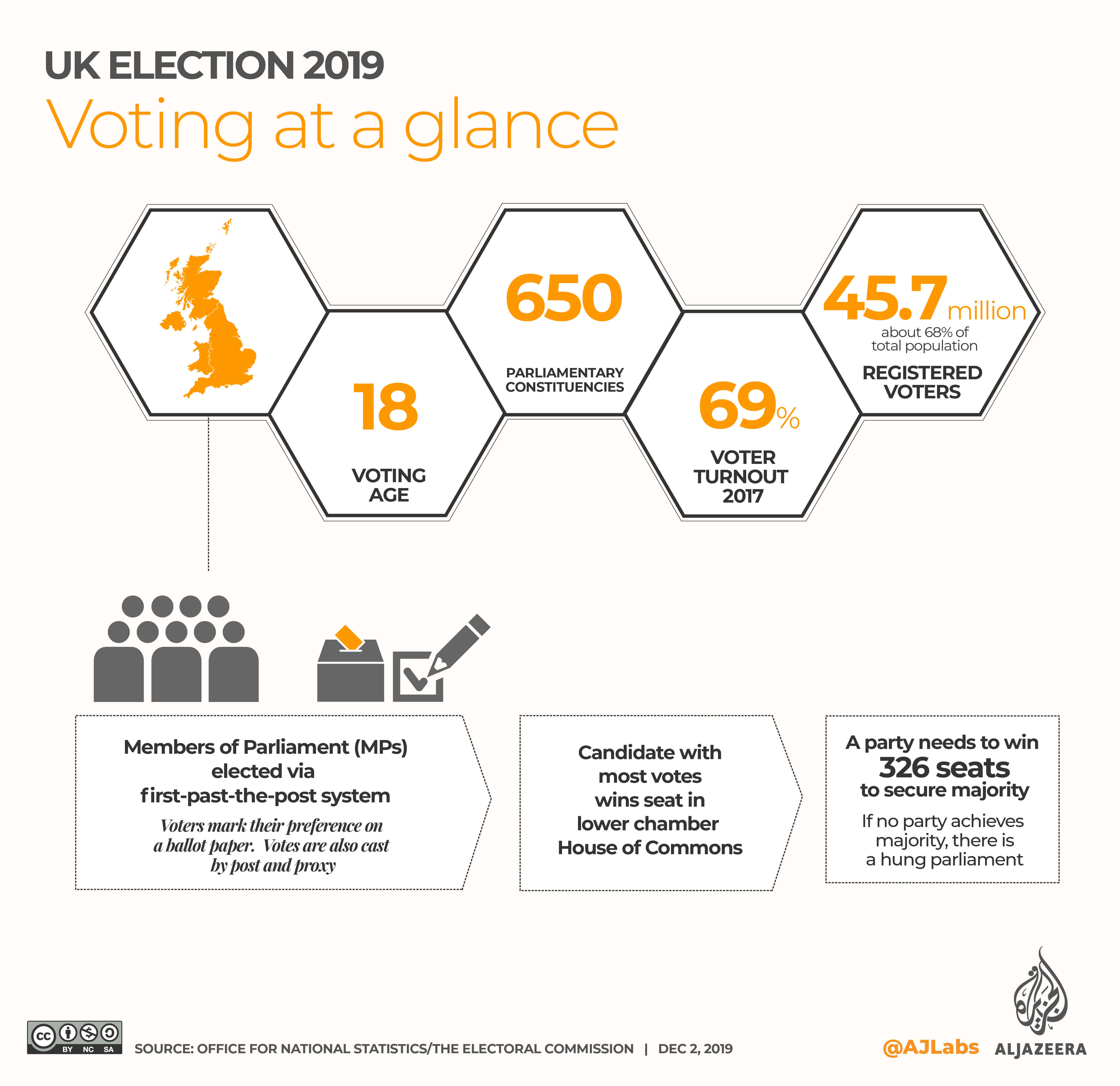
Analysts said it remained to be seen whether Britons would vote according to their views on Brexit, above all else.
“We won’t know if it’s the Brexit election until we see the results,” said Anand Menon, director of The UK in a Changing Europe think-tank, citing several pro-Brexit, traditionally Labour-held constituencies as bellwethers.
“The last time [in 2017], for all the talk about Brexit, it was a pretty traditional election where social class was the determining feature for how and why people voted.”
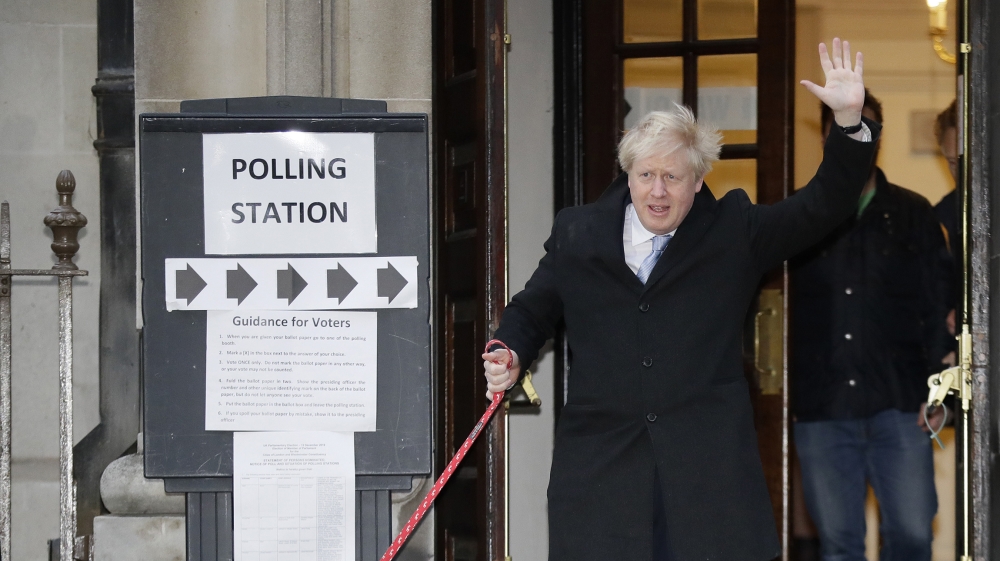
In Westminster, London’s political heart, voters were out early in the morning under grey skies.
Aicha Daidai, 28, said she was voting for the first time in 10 years to try and prevent the Conservatives from extending their decade-long grip on government.
“I voted Labour. Out of all the candidates, Jeremy Corbyn is the one that I relate to and like the most,” Daidai said.
“He stands for peace rather than hatred and separation, while as a Muslim woman, I don’t like what Johnson has said about Muslims … He more spreads hatred and separation rather than uniting and keeping us together as a nation.”
Both Johnson and Corbyn have fought claims of racism within their parties, over Islamophobia and anti-Semitism respectively.

Former-Conservative supporter Adam Ling, 50, said he was turning his back on the party over its veer to the right under Johnson’s leadership.
“I voted Liberal Democrats [a pro-EU party]. I’m an ex-Tory, but the party has gone very right-wing and I’m not there,” Ling said. “Brexit is a big issue but also, in general, the Tory party is no longer a big tent; all the people that I liked and admired have all left, so I have left as well.”
Brexit pledges
Johnson has repeatedly promised to take the UK out of the EU by the end of next month if voters return a majority Conservative government, with his “Get Brexit Done” mantra front and centre of the party’s pre-election campaigning efforts.
Even if Parliament were to sign off on his withdrawal agreement by that deadline, a potentially gruelling negotiation over the UK and EU’s future relationship will begin as the so-called “transition period” comes into effect.
THREAD
Today, the UK heads to the polls for a snap general election – called to break the country's Brexit impasse.
Here’s everything you need to know 👇 #GE2019 pic.twitter.com/KwPIvqtAcH
— Al Jazeera English (@AJEnglish) December 12, 2019
Johnson’s Brexit message has been aimed at consolidating support among his base and luring disgruntled, pro-Brexit Labour voters into switching sides.
“Brexit is wrapped into a whole bunch of other issues, but I think it’s important that we are able to take control of our own destiny from a legal standpoint,” said 54-year-old Conservative voter John, in Westminster, adding the party’s pledges to invest in the NHS and lower taxes also had his support.
“The era of the British Empire is long past and the country needs to be able to embrace a new way forward and to my mind that new way forward is to emulate somewhere like Singapore, and create a low-tax environment. I think it is a lot easier to do that when you’re outside of the EU.”
Corbyn, for his part, has pledged that a Labour administration would negotiate a softer withdrawal agreement than the one brokered between Johnson and Brussels, one aimed at building a new UK-EU customs union and ensuring close alignment to the EU’s single market.
Under Labour’s Brexit plan, the revised deal would be put to a referendum, alongside an option to remain, within six months.
With the party deeply divided over the issue, however, much of Labour’s pre-election messaging focused on the state of public services and its plan for a major shake-up of the economy.
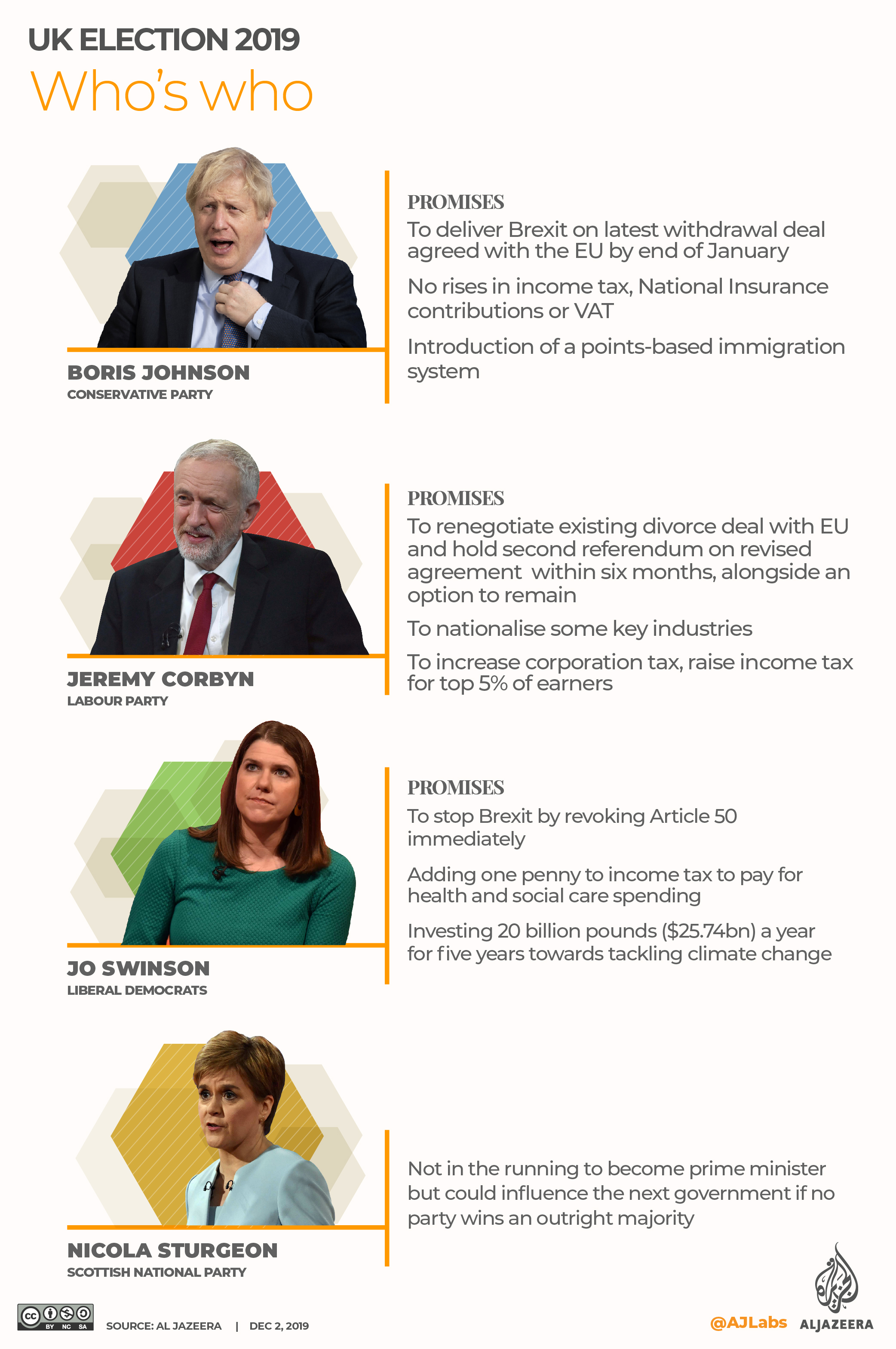
Among the smaller parties, the Scottish National Party is aligned with Labour in supporting a second referendum, so long as remaining in the EU is an option on the ballot paper, while the Liberal Democrats, led by Jo Swinson, have pledged to revoke Article 50 and cancel Brexit altogether if they win a majority.
In the event no party wins an outright majority, there will be a “hung parliament”. In this scenario, the party with the largest vote share may form a minority government, seek out the support of smaller parties for a “confidence and supply” arrangement, or try to build a formal coalition.
‘Politics is broken’
A mile down the road from the Parliamentary Estate, several voters expressed despair at the choices on offer and the prospect of further political chaos.
One participant shouted it was “time to spoil my ballot” as he headed to a polling booth, while others said they would register a protest vote.
“The two leading parties are both in need of reform,” said Victoria, 62. “The centre has collapsed … and the quality of our politicians is pitiful.”
Heading out of the booth with no great excitement, having cast his ballot for the Liberal Democrats for the first time, Ling said: “The campaign was completely uninspiring, and its now a choice between unpalatable alternatives … Politics is broken.”